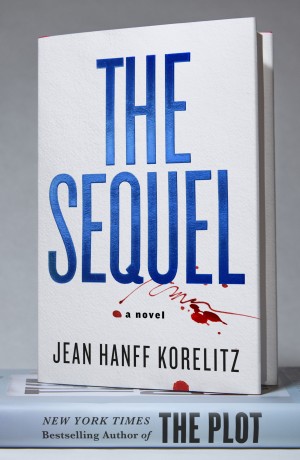Jean Hanff Korelitz’s latest novel is about family: the obligations one has — or doesn’t have — the secrets we keep, and the stories we carry. The novel follows the Oppenheimers, a wealthy New York City – based family. The parents, Salo and Johanna, meet in college under devastating circumstances and begin a life together that eventually includes IVF and triplets. Despite finally having the children she desperately wanted, Johanna realizes that there are no strong familial bonds; the siblings aren’t particularly close, her marriage feels tenuous, and it’s almost like they are five individuals simply living under the same roof.
That all changes when Johanna decides to add another child to the family, going back to a leftover embryo after the triplets have left for college. When the three return home for the summer after their freshman year, things come to a head one night, and what happens next alters all of their lives forever. More than a decade later, the family “latecomer,” Phoebe, may be the key to reconciliation and togetherness — as well as the guide to finding long-buried answers.
The chapters center on different characters, giving an in-depth look at the motives, leanings, and feelings of each. Korelitz drops hints in every chapter that aren’t entirely clear until a chapter or two later. The result of this slow burn and eventual reveal is that by the end of the book, the gradual peeling away feels like a monumental achievement of craft.
The characters aren’t always likable; in fact, for much of the novel, they aren’t. But that’s another testament to Korelitz’s storytelling abilities. The reader keeps on, wanting to find out what will happen to each character and know the answers to underlying secrets or suspicions.
The Oppenheimers’ Jewishness is not a main part of the book but rather hovers in the background. Their Judaism is not merely a plot point to move the story forward, though — Korelitz weaves it into the characters’ lives so that it feels like a natural extension of them.
While this is a book about familial conflicts, that almost seems too easy a description. This is a case study of a family: the interrelations, and the repercussions of certain decisions that ripple out toward the next generation. Through her characters, Korelitz subtly asks: What are the obligations we have to each other? What is expected of us, as family? Is reconciliation always possible, and is it owed anyone?
Jaime Herndon is a medical writer who also writes about parenting and pop culture in her spare time. Her writing can be seen on Kveller, Undark, Book Riot, and more. When she’s not working or homeschooling, she’s at work on an essay collection.





